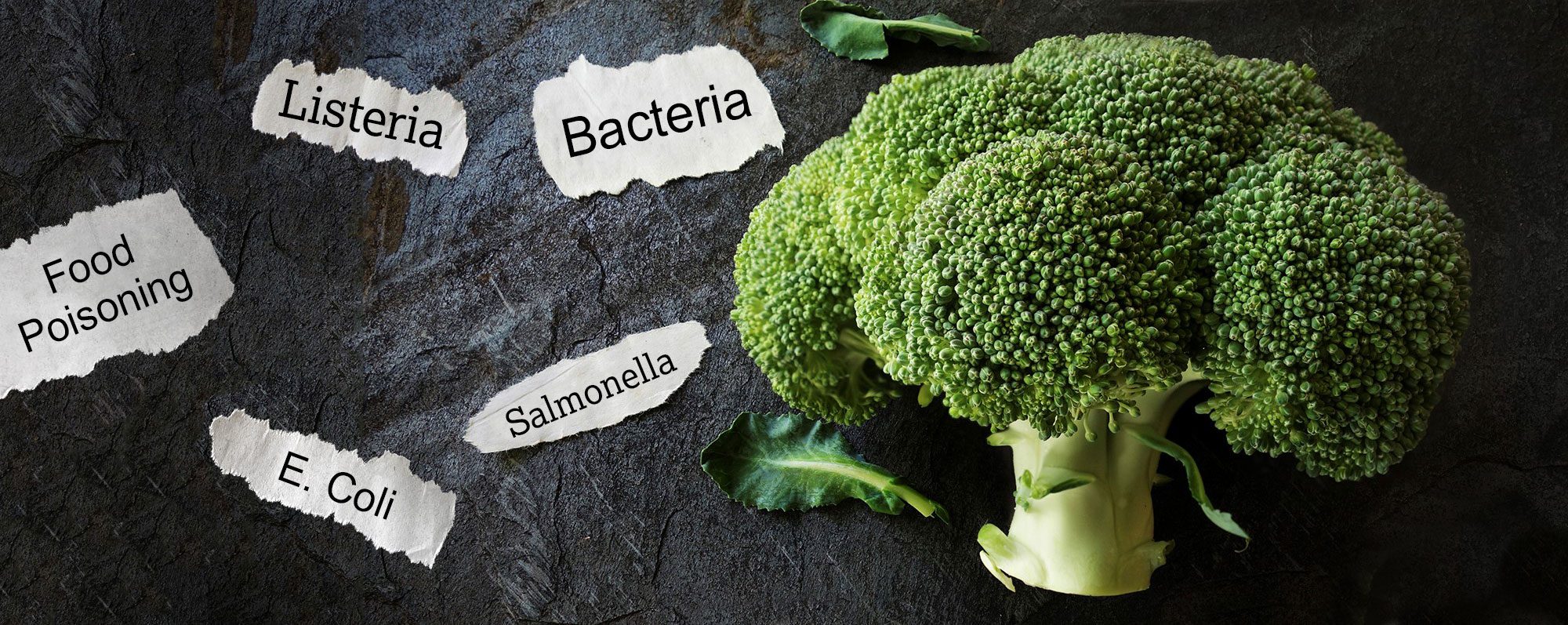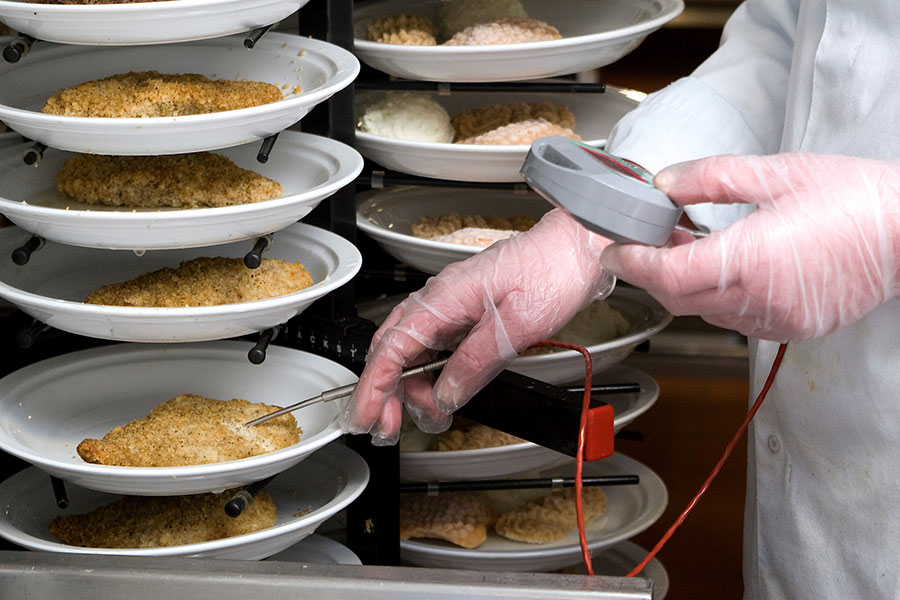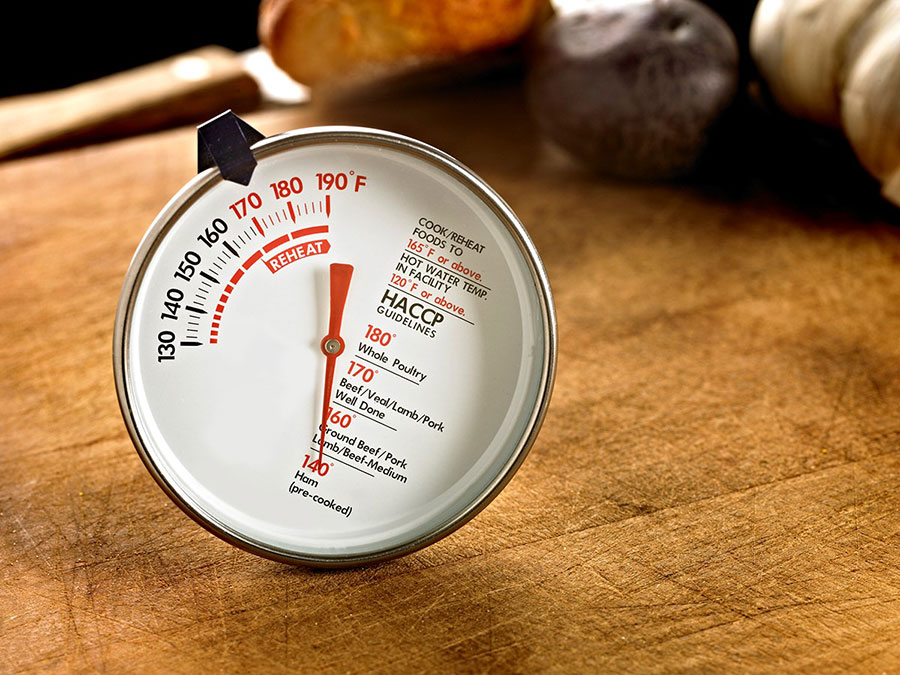

Every week, websites across the country like DineSafe present a list of foodservice establishments that have been closed, or issued conditional warnings of closure, and the violations that have been cited.
Inspection results identify restaurants, cocktail bars/beverage rooms, bakeries and QSRs deemed by Health Inspectors to be in violation of the provincial food safety regulations.
Violators can run the gamut from independent bakeries, food court operators, and franchise restaurants, to independent family restaurants. The element that violators have in common is a breakdown in the processes and procedures that ensure food safety.
In a world of open social networks, there’s nowhere to hide from the downside risks of violating health codes and/or consumers being affected by foodborne illness. During the pandemic, concerns about food safety have only been magnified. Thus, interest in and attention to safety needs to permeate the business culture of absolutely all operators, no matter their size or location, working with food.

The 5 top restaurant food safety areas of concern
The vast majority of food safety violations fall into the following problem categories commonly identified in foodservice inspections. Roughly 80% of the food handling practices leading to foodborne illnesses are covered by five specific breakdowns:
- Keeping hot/cold food at correct temperatures
- Proper handwashing practices
- Food contact surfaces protected from contamination
- Sanitation plan and cleaning schedule
- Dishwasher procedures
Root causes
Pam Mandarino, an environmental health officer in Vancouver, conducted an extensive food safety study (2017) which analyzed inspection report data on temporary restaurant closures and food handling violations in British Columbia. The study cross-referenced findings of similar studies conducted in the U.S.
Mandarino concluded that multiple factors, and not just food safety knowledge, affect safe food handling practices.
Below are some of the factors she found that influence safe restaurant food preparation practices:
- Time pressures
- Manager indifference toward proper food safety practices
- Food safety certification and food safety training
- Inadequate food handler knowledge
- Poorly designed kitchen facilities and insufficient standard operating procedures
Stop food safety problems before they begin
Proactive attention to food safety practices and processes is your best bet to circumvent a food safety crisis. That being said, having an action plan in place to address a crisis, isolate the causes, and map a recovery path can forestall devastating outcomes.
Myths and Truths About Food Poisoning
| Not True | True |
|---|---|
| A food with enough pathogens to make you sick will look, smell or taste bad. | A food with enough pathogens to make you sick may look, smell or taste good. |
| Really fresh food cannot make people sick. | Really fresh food can cause food poisoning if it is not properly handled. |
| Only dirty kitchens can make people sick. | Even clean kitchens can make people sick. |
| Properly cooked food can never cause food poisoning. | Food poisoning can occur even when foods are properly cooked. |
Source: BC Centre for Disease Control (2009), Ensuring Food Safety Writing Your Own Food Safety Plan – A Guide for Food Service Operators.
Gathering storm
In 2019, the Canadian Food Inspection Agency introduced the Safe Food for Canadians Regulations (SFCR). The SFCR legislation requires food suppliers, importers/exporters, and foodservice operators to mandate preventability and to improve traceability – not an insignificant ask, given that the majority of the food we consume in Canada comes from abroad.
Lawrence Goodridge, Director at Canadian Research Institute for Food Safety, University of Guelph, feels that SFCR does not go far enough. He compares the traditional “surveillance” approach to food safety to predicting the weather: Each of us checks the weather each day, yet no individual feels strongly that their specific observations can accurately predict what will happen.
Smartphone apps are being engaged to accumulate user weather observations and their geo-locations. Feeding this data into artificial intelligence algorithms can create more accurate meta-reports on local weather patterns in real time.
Imagine now that food safety was tracked in a similarly proactive fashion. Responses on foodborne outbreaks could be identified very early on, via smartphone, by individual consumers, leading to faster removal of contaminated food from the food chain.

Top tips to prevent food safety situations
Restaurant food handling tip sheet
- Label and date your products when you receive them or when you prepare them.
- Understand proper food storage temperatures and storage.
- Rotate your food products (first in, first out). This should be standard procedure for everything: canned goods, produce, meat, dairy.
- Constantly do checks of the food in your fridges and ensure they’re set at the proper temperature.
- Reheat foods properly.
- Ensure correct handling of fresh produce, for instance not leaving it standing in cold water.

Restaurant food handling training
- Consider hiring a licensed cook with responsibility for ongoing staff training.
- Make sure all staff take a food handling course.
- Make equipment handling courses mandatory, including an annual refresher so staff understand correct operation and cleaning of all equipment.
- Work the relationship with your local health unit and ask if they’ll help with training.
- Rehearse your food handling procedures. Don’t wait for a crisis to happen, be prepared to respond.
Restaurant cleaning
- Maintain a cleaning checklist, posted prominently for kitchen staff.
- Ensure your equipment is cleaned and sanitized.
- Work with your cleaning equipment supplier to recommend best products to use in the kitchen. A lot of suppliers will come in and train your staff.
Educating
- Stay on top of food safety issues. The CFIA publishes regular updates on food-borne issues along with the latest acts and regulations. Food manufacturers publish regular bulletins on their products, and many distributors also send out food safety alerts.
- Sign up for the National Food Safety Training Program, offered across the country.


